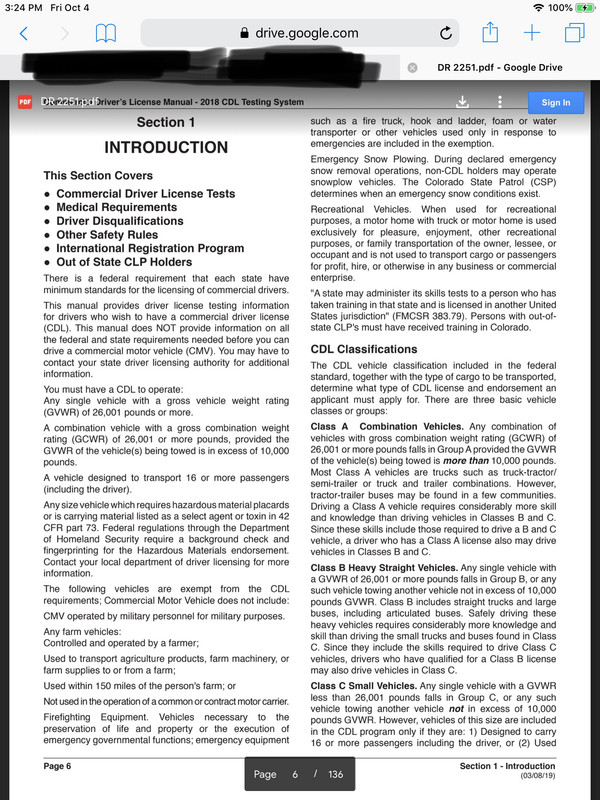CDL requirements do not care about actual weight - the are based on weight ratings (GVWR and GCWR). Barring an exemption (RV, farm use, etc.) the license requirements are pretty straight forward. Fallon mentions tractor work/business so he clearly qualifies as commercial.
Class A CDL is required if 1) the trailer GVWR is >10,000 lbs. AND 2) the GCWR is >26,000 lbs.
Class B CDL is required for vehicles with a GVWR > 26,000 lbs (can tow a trailer ≤ 10,000 lbs GVWR without bumping up to Class A).
Definitions:
GVWR = Gross Vehicle Weight Rating (The maximum amount the truck or trailer can legally weight - this number is found on the door tag or trailer tongue)
GCWR = Gross Combined Weight Rating (The maximum amount the truck plus trailer can legally weight. This is a calculated number determined by adding the GVWRs listed on the truck and the trailer.)
Examples:
1. An F250 with GVWR = 10,000 tows a trailer with GVWR 16,000 lbs resulting in a GCWR of 26,000 lbs. No CDL is required. (Practical note: The truck would likely need to be a regular cab to have enough payload to fully load the trailer without overloading the truck)
2. A SRW F350 with GVWR = 11,400 tows a trailer with GVWR 14,000 lbs resulting in a GCWR of 25,400 lbs. No CDL is required.
3. A DRW F350 with GVWR = 12,000 (mid 2000s model) tows a trailer with GVWR 14,000 lbs resulting in a GCWR of 26,000 lbs. No CDL is required.
4. A DRW F350 with GVWR = 13,400 (newer model) tows a trailer with GVWR 14,000 lbs resulting in a GCWR of 27,400 lbs.
5. An F550 with GVWR = 19,500 tows a trailer with GVWR 10,000 lbs resulting in a GCWR of 29,500 lbs. No CDL is required.
6. An F550 with GVWR = 19,500 tows a trailer with GVWR 14,000 lbs resulting in a GCWR of 33,500 lbs. A Class A CDL is required.
6. An F750 with GVWR = 33,000 tows a trailer with GVWR 10,000 lbs resulting in a GCWR of 43,000 lbs. A Class B CDL is required.
6. An F750 with GVWR = 33,000 tows a trailer with GVWR 14,000 lbs resulting in a GCWR of 47,000 lbs. A Class A CDL is required.
I used Fords in the above example because they have models accross this entire range and it was easy.
As mentioned above, the CDL requirements are based on the RATINGS. An unloaded DRW F350 with GVWR = 13,400 lbs weighing only 8,000 lbs towing an empty 4,000 lbs flat bed trailer with GVWR 14,000 lbs requires a Class A CDL because the GCWR = 27,400 lbs even though the actual weight of the setup is only 12,000 lbs.
The exceptions for RVs, Farm Use, "Personal Use" etc. can get pretty muddy, especially state to state, but the CDL requirements for clearly commercial use are Federally defined and pretty straight forward.
Fallon,
I agree that a crew cab diesel 3/4 ton truck will limit your payload. I recommend stepping up to a SRW 1-ton pickup to ensure you have enough payload to fully utilize your trailer and just make sure the it's GVWR is ≤ 12,000 lbs.
